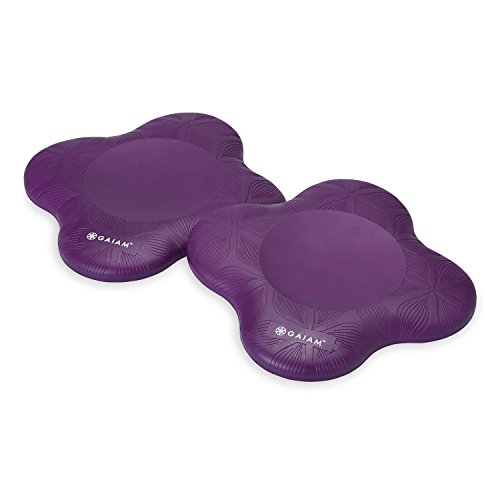When I first started paying attention to nutrition, the word “fat” felt like a red flag. But not all fats are created equal—some are essential for our bodies and can actually make meals more satisfying and delicious. Healthy fats are the unsung heroes of a balanced diet, boosting energy, supporting brain health, and even making your skin glow.
Why Healthy Fats Are Essential
Healthy fats provide vital support for overall wellness, particularly when paired with a mindful lifestyle that includes yoga and meditation. These fats fuel the body with long-lasting energy, which enhances physical stamina during yoga practice. Omega-3 fatty acids, often found in fatty fish and chia seeds, are known to reduce inflammation and support joint health—key benefits for maintaining flexibility and comfort in yoga poses.
For mental clarity during meditation, healthy fats play an integral role in brain health. The brain relies on fats like those in avocados, walnuts, and flaxseeds to maintain focus, improve memory, and regulate mood. Including these fats supports serenity and mental balance, deepening the connection between mind and breath during meditative practices.
In addition to energy and brain support, healthy fats contribute to balanced digestion, which aligns with the body’s natural rhythms. Fats like those in olive oil and almonds aid nutrient absorption, ensuring the body receives maximum benefit from nutrient-rich meals. This alignment enhances vitality and supports a more harmonious approach to holistic health.
Choosing the Right Sources
Incorporating healthy fats into meals starts with selecting the best sources. I always remind my yoga students and meditation clients that quality matters as much as balance. Choosing nutrient-dense options ensures the body and mind stay nourished.
Plant-Based Fats
Plant-based fats are excellent for energy and overall wellness. Avocados, for example, are rich in monounsaturated fats that support heart health and provide sustained energy during yoga flows. Nuts like almonds and walnuts contain omega-3 fatty acids, known to reduce inflammation and boost brain function, which is crucial for focused meditation sessions. Seeds, including chia and flax, are packed with fiber and nutrients essential for digestion and vitality. I also recommend using olive oil—extra virgin if possible—for its antioxidant properties and the light nourishment it provides, perfectly complementing salads or roasted vegetables.
Animal-Based Fats
High-quality animal-based fats can also play an essential role. Fatty fish, such as salmon, mackerel, and sardines, are powerful sources of omega-3s, supporting joint health and concentration during longer yoga practices or meditation. Ghee, staples in Ayurvedic traditions and my own kitchen, is packed with healthy fats, aiding in digestion and energy stabilization without feeling heavy. Eggs, particularly from free-range sources, offer a combination of protein and healthy fats, helping to keep the body strong and nourished, especially after a physically demanding flow sequence.
Easy Ways to Add Healthy Fats to Meals
Incorporating healthy fats into meals can transform your diet, enhancing both your physical energy and mental clarity. I often share simple, practical ideas with my students to make nutritious eating enjoyable and sustainable.
Breakfast Ideas
Start the day with nourishing fats to fuel your body and mind. Add sliced avocado to whole-grain toast, sprinkle chia or flax seeds on oatmeal, or blend nut butter into smoothies for a creamy kick. For a warm breakfast, cook scrambled eggs in ghee, which supports digestion and adds a rich flavor. These options provide sustainable energy perfect for morning yoga or meditation.
Lunch and Dinner Tips
Balance your meals by including fats in main dishes. Drizzle extra virgin olive oil over salads or roasted vegetables for added nutrients. Incorporate fatty fish, such as salmon, into grain bowls or pair it with steamed greens for a boost of omega-3s that support joint health. I also love adding a handful of nuts, like walnuts or almonds, to grain-based dishes for texture and healthy fats. Cooking with coconut oil enhances flavors in curries while providing additional nourishment.
Snack Options
Quick snacks help sustain energy between sessions. Keep a small bag of mixed nuts and seeds for an on-the-go option. Pair sliced veggies or fruit with a side of guacamole or almond butter for a satisfying balance. For a slightly indulgent yet wholesome treat, try dark chocolate with at least 70% cocoa combined with a handful of raw almonds. These snacks keep energy levels steady, especially on busy days.
Cooking Techniques to Maximize Benefits
Cooking with healthy fats thoughtfully enhances their nutritional value and supports a balanced lifestyle. As someone deeply passionate about holistic health, I always encourage methods that align with maintaining vitality and energy.
Avoiding Overheating Fats
Keeping fats within their safe temperature range helps preserve their nutrients. For example, I use olive oil for low to medium-heat cooking like sautéing vegetables but avoid it for high-heat frying since it can degrade its antioxidants. For higher temperatures, I opt for avocado oil or ghee due to their higher smoke points, ensuring the fats don’t lose their beneficial properties. When preparing meals for yoga practice days, I focus on these stable fats to maintain their positive effects on joint health and energy.
Using Fat-Friendly Recipes
Recipes designed to incorporate healthy fats enhance both flavor and nutrition. I love blending chia seeds into homemade almond milk puddings or drizzling tahini over roasted vegetables, which support digestion and sustained energy for breathwork sessions. For dinners, I prepare baked salmon with a side of quinoa and a dollop of avocado-lime sauce, combining omega-3s and monounsaturated fats for brain and heart health. These meals align with a mindful lifestyle, fostering clarity and balance for both meditation and physical well-being.
Common Mistakes to Avoid
Avoiding fats entirely is a big misconception. Many people think cutting all fats from their diet leads to better health, but this deprives the body of essential nutrients. Healthy fats, like those in nuts, seeds, and fatty fish, are vital for energy, digestion, and brain function.
Overheating oils destroys their nutrients. Cooking with extra virgin olive oil at high heat breaks down its beneficial compounds. Use it for salads or low-heat cooking instead, and choose options like avocado oil or ghee for high-heat methods.
Choosing processed fats instead of whole sources decreases nutritional value. Opt for natural sources like raw nuts or plain avocados instead of packaged products loaded with unhealthy additives.
Ignoring portion control even with healthy fats leads to calorie imbalances. For instance, a handful of nuts or a tablespoon of peanut butter can support your energy without causing excessive intake. Always align portion sizes with your activity level.
Relying only on one type of fat limits nutritional diversity. For example, eating only avocados excludes omega-3s from fatty fish. Balance your meals with different healthy fat sources for well-rounded benefits in your yoga or meditation practice.
Conclusion
Embracing healthy fats has truly transformed the way I approach food and wellness. They’re not just about nourishment—they bring balance, energy, and joy to every meal. By making thoughtful choices and experimenting with different sources, it’s easy to create meals that fuel both the body and mind.
Healthy fats remind me that good nutrition isn’t about restriction but about finding harmony and enjoying the process. So, take it one step at a time, and let these nourishing additions inspire your journey to a healthier, more vibrant lifestyle.
















